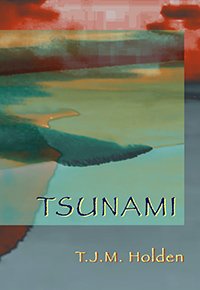Tsunami
Based on actual events . . .
Tsunami is the literary treatment of March 11, 2011, and its aftermath—
the day the fourth-largest earthquake in recorded history begat a forty-meter tsunami which begat nuclear meltdown. In a matter of hours this "triple disaster" produced 15,881 deaths; 6,152 injured; 2,584 missing; displaced hundreds of thousands; unleashed the second-worst nuclear disaster; and became the world's costliest ecological disaster . . .
one whose economic, environmental and health consequences will be felt for years to come.
In nine stand-alone, interlinked chapters, Tsunami recounts tales of loss, heroism, survival, perseverance and adaptation, through the eyes of victims, witnesses, rescuers, refugees, reporters and civil authorities, whose lives collide in conclusion.
Meet indelible characters, inhabiting mundane, yet captivating worlds, with heart-rending, evocative stories to tell: a train conductor, a kelp fisherwoman, a high school English teacher, a salaryman, a nuclear engineer, a translator, a reporter, a high school student, a grieving mother, a university professor, among others.
Men, women and children, Japanese and foreign, whose intertwined pathways form an arc of crisis, struggle and recovery, and deliver a universal story of the human response to misfortune through belief in self, collective action, sacrifice, humanity and faith.
As such, Tsunami is more than a set of dramatic tales concerning people caught up in the wake of a natural phenomenon in a particular country at a particular time in human history. Its underlying message concerns the set of forces that threaten to overwhelm and destroy human beings under any conditions, anywhere. Tsunami is ultimately a paean to the battered, but unbroken human spirit; a panegyric on human capacity and will, second chances, redemption and transcendence.



